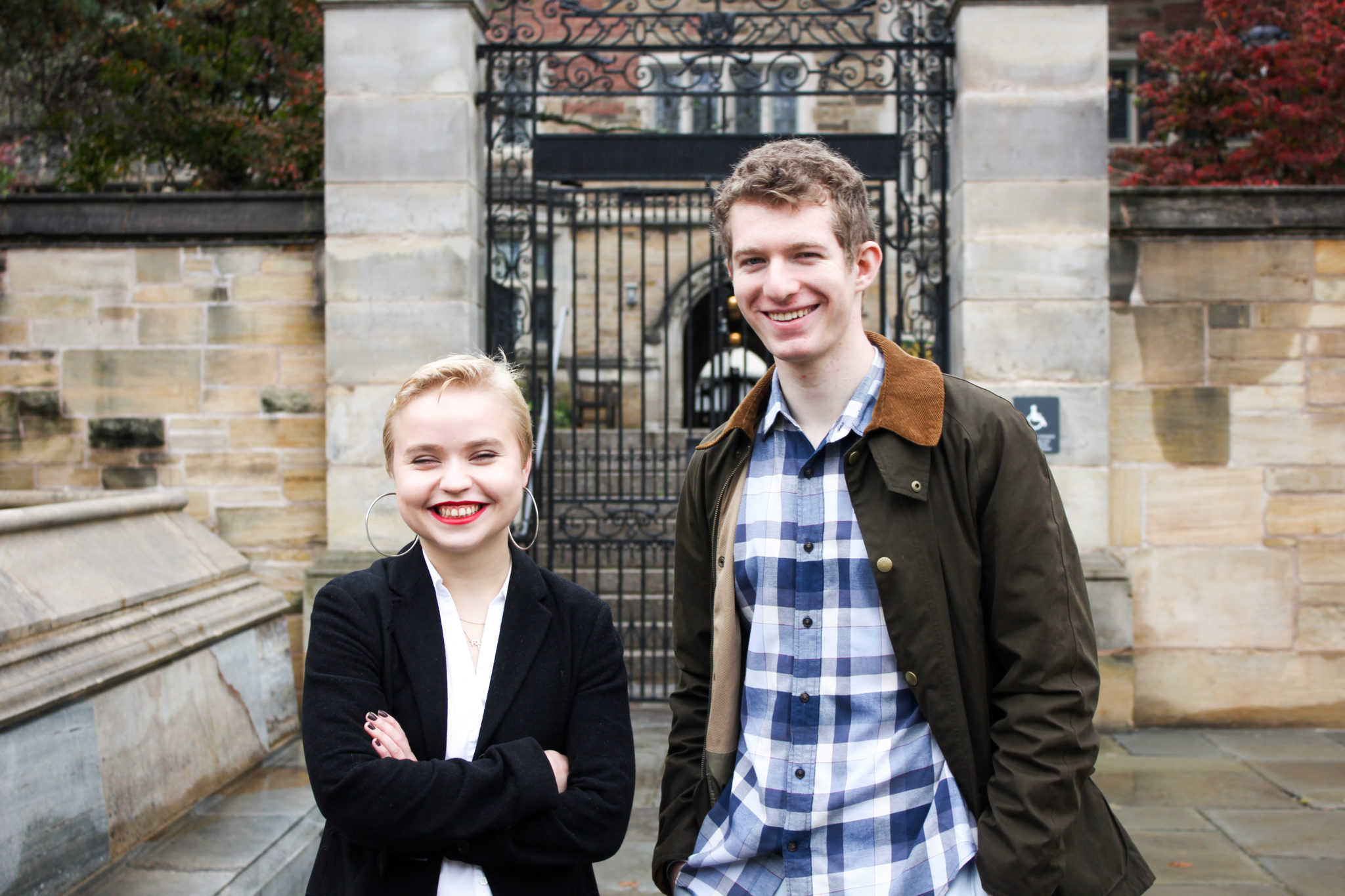
Kate Pundyk
Ryan Schiller ’21 and Daria Kozeko ’21 recently launched Librex, a mobile app that lets Yale students anonymously discuss campus culture with their peers, while collecting as little data as possible.
The app, which is available on iOS, launched in September and is slowly spreading across campus.
“We saw the way technology companies have been using and abusing our data, which presents not only legal issues but also social ones” Kozeko said. “We think it is better to stay as far away from [selling user data] as possible.”
According to Kozeko, this strict privacy philosophy recently got them rejected in the final round of interviews from the prestigious Y Combinator program that helped launch companies like Airbnb and Dropbox.
In their rejection, the program articulated concerns about Librex turning a profit without selling user data.
“We built an anonymous app because people on campus — particularly international friends — have felt that they couldn’t express how they actually felt to their friends or in classes because they were worried about how they would be judged,” Schiller said. “We want to invite people back into the community, rather than having them feel alienated.”
Kozeko said it is about more than just combating self-censorship but also about building a space where people feel free to ask questions. Librex’s advisor in the Tsai CITY accelerator program, Samuel Kitara SOM ’20, agreed in an interview with the News.
“I would encourage student groups that host talks and speaker series to download Librex,” Kitara said. “We get a lot of really great scholars and controversial speakers who come to campus. Students should feel they can ask any question and Librex is a great platform to allow them to do that.”
Kozeko and Schiller aren’t the only people at Yale grappling with questions about how to protect the privacy of internet users. Yale Law School’s visiting lecturer Sean O’Brien, who is also the founder and CEO of a start-up that builds storage devices, said he believes Librex is part of a growing trend.
“Privacy and cybersecurity, which are very closely linked, are things that consumers are demanding. I also think there is a strong feeling — that Librex is tapping into — about platforms like Facebook, Twitter, et cetera, that the amount of surveillance that is going on is not acceptable,” O’Brien said. “So there is going to be more of a drive for start-ups to create alternatives that are private to harness the users who are fed up with those other services.”
Schiller and Kozeko acknowledged that some people have concerns about anonymous platforms spiraling into gossip forums but said the way they built the app will allow them to avoid such a situation. Using the names of people other than public figures is banned on Librex, the app developers said. They added that they have invested in building strict guidelines for moderation.
“We had concerns and that’s why we’ve put so much time into moderation — both in community driven moderation but also in finding diverse leaders on campus to advise on moderation decisions,” Schiller said. “This is an app for the Yale community so hopefully it will reflect Yale norms.”
O’Brien said he believes that anonymity isn’t something Yale should be afraid of.
“I think candid, anonymous feedback can be extremely helpful. I also think it should be of interest to anybody who cares about the state of students on campus,” O’Brien said. “For example, on the Librex site, I see a post about mental health. These are the type of things we want to talk about— I think it’s very healthy.”
For now, Schiller and Kozeko wear their Y Combinator rejection as a badge of honor. The duo will focus on improving the back end of their app and growing their user base at Yale, they explained. They said they hope that by improving venues for constructive dialogue on campus, Librex will eventually be able to connect community members for discussions in person.
Kitara said he is excited to see where Schiller and Kozeko go from here.
“The way they have laid out their mission reflects their commitment to providing a high-quality product, rather than making a quick buck,” he said.
A 2018 Gallup survey found 61 percent of college students thought that their campus culture deterred speech







